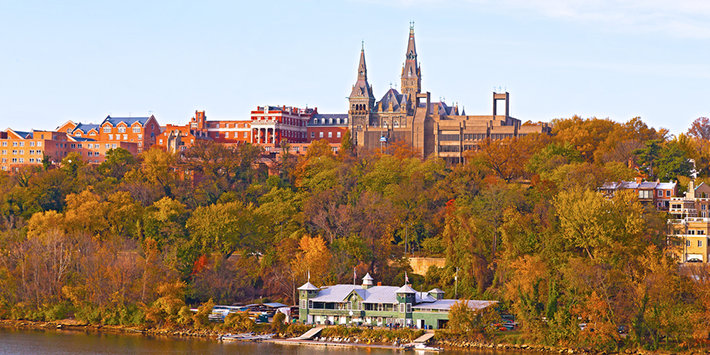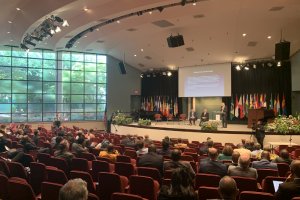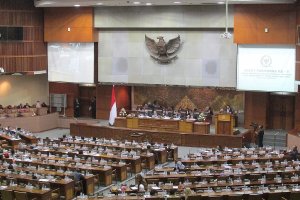On November 30, Jocelyne Cesari, a senior fellow of Berkley Center for Religion, Peace, and World Affairs, will join an online discussion, “France and Islam: Identity, Politics, and Geopolitics,” sponsored by the Brookings Institute’s Doha Center. On December 1 and 2, Georgetown University Department of Theology and Religious Studies and the Berkley Center cosponsor Buddhist-Christian Perspectives on Contemplative Practices and Religious Belonging. These are but two of the many events organized with or by the Brookings Institute in its effort to accomplish its mission.

After the September 11, 2001, terrorist attacks and the “resurgence of religion in world affairs,” in 2006 Georgetown University created the Berkley Center for Religion, Peace, and World Affairs to promote peace, increase public understanding and resolve problems at the intersection of religion and global affairs.
Through research, teaching, and public engagement the Center seeks to resolve complex global challenges to peace.
The Center’s Religion in Diplomacy program researches the role religion plays in international relations. The program looks into social and economic development; local, national and transnational policies regarding migration and refugees; and the causes and consequences of attitudes toward religious freedom in different parts of the world.
Another program, “Globalization and Religion,” aims to understand how globalization influences religion and impacts its public display. “Religion, Norms and Ethics” examines how religion influences political, cultural and legal systems across the world.
The Center looks into “issues ranging from nuclear proliferation to climate change to migration and refugees,” and “investigates how morality and religion influence policy decisions and approaches of multinational institutions to shared crises.”
The Center approaches these issues “by looking at U.S. constitutional law related to free exercise, establishment, and the accommodation of diverse religious practices and international religious freedom, and also by addressing fundamental theoretical questions about the way that political and legal systems are legitimated in an increasingly pluralistic world.”
To learn more or participate in any of their programs, visit the Berkley Center for Religion, Peace, and World Affairs website.
________________________
From its beginnings, the Church of Scientology has recognized that freedom of religion is a fundamental human right. In a world where conflicts are often traceable to intolerance of others’ religious beliefs and practices, the Church has, for more than 50 years, made the preservation of religious liberty an overriding concern.
The Church publishes this blog to help create a better understanding of the freedom of religion and belief and provide news on religious freedom and issues affecting this freedom around the world.
The Founder of the Scientology religion is L. Ron Hubbard and Mr. David Miscavige is the religion’s ecclesiastical leader. For more information, visit the Scientology website or Scientology Network.


